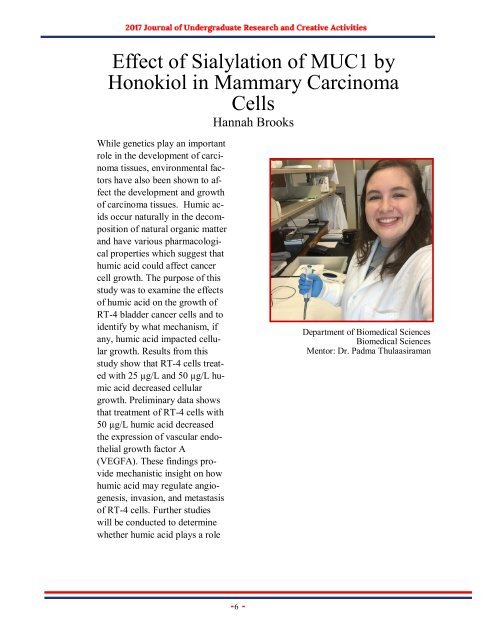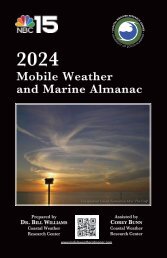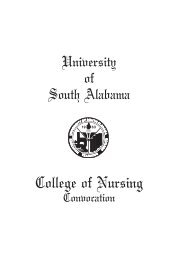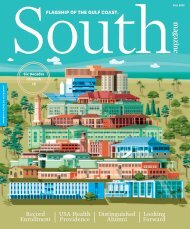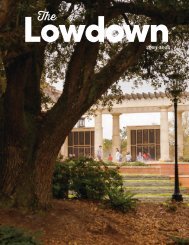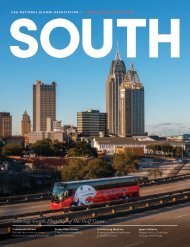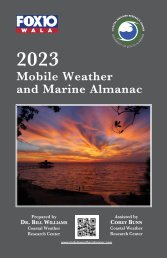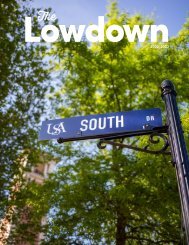JOURACA_SP_2017
You also want an ePaper? Increase the reach of your titles
YUMPU automatically turns print PDFs into web optimized ePapers that Google loves.
Effect of Sialylation of MUC1 by<br />
Honokiol in Mammary Carcinoma<br />
Cells<br />
Hannah Brooks<br />
While genetics play an important<br />
role in the development of carcinoma<br />
tissues, environmental factors<br />
have also been shown to affect<br />
the development and growth<br />
of carcinoma tissues. Humic acids<br />
occur naturally in the decomposition<br />
of natural organic matter<br />
and have various pharmacological<br />
properties which suggest that<br />
humic acid could affect cancer<br />
cell growth. The purpose of this<br />
study was to examine the effects<br />
of humic acid on the growth of<br />
RT-4 bladder cancer cells and to<br />
identify by what mechanism, if<br />
any, humic acid impacted cellular<br />
growth. Results from this<br />
study show that RT-4 cells treated<br />
with 25 µg/L and 50 µg/L humic<br />
acid decreased cellular<br />
growth. Preliminary data shows<br />
that treatment of RT-4 cells with<br />
50 µg/L humic acid decreased<br />
the expression of vascular endothelial<br />
growth factor A<br />
(VEGFA). These findings provide<br />
mechanistic insight on how<br />
humic acid may regulate angiogenesis,<br />
invasion, and metastasis<br />
of RT-4 cells. Further studies<br />
will be conducted to determine<br />
whether humic acid plays a role<br />
Department of Biomedical Sciences<br />
Biomedical Sciences<br />
Mentor: Dr. Padma Thulaasiraman<br />
6


